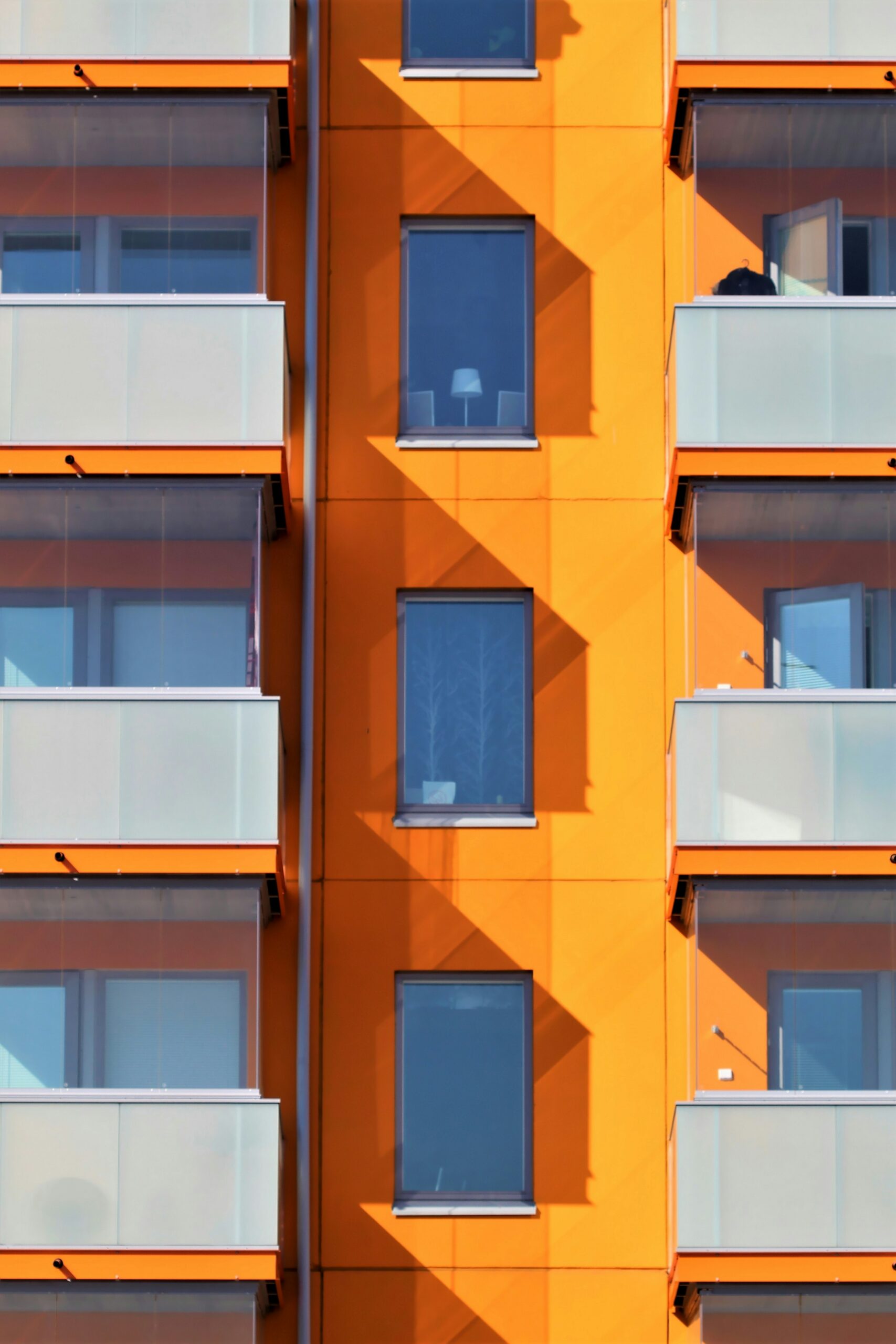What is an EWS1 Certificate?

Estimated reading time 8 minutes
Property sales can often be complex, especially with the amount of paperwork and legal processes required. One such aspect that has received a lot of attention over the past few years is the EWS1 certificate.
The EWS1 certificate, or EWS1 form as it is sometimes called, is a certification given to owners and developers of flats that proves that approval from a qualified professional has been given to the external wall system for its fire safety credentials.
Introduced following the Grenfell Tower tragedy, such certifications give added peace of mind to residents looking to sell and those looking to buy.
In this blog, we look at all there is to know regarding an EWS1 form, so you know whether you’ll be able to sell your flat fast or have to go through additional expenses to help make it happen.
What does an EWS1 form certify?
Having an EWS1 form certifies that the external wall system of a property has been assessed and approved for its fire resistance. The External Wall System or EWS is made up of the outside wall of a residential building and includes cladding, insulation, fire barriers, fire stops, and anything attached externally such as a balcony.
What is an EWS1 certificate used for?
The EWS1 certificate originated as a result of the Grenfell disaster and provides the owner of the flat with a way to show a potential buyer or mortgage lender that the external wall system has been assessed and approved by an appropriate professional. Following Grenfell, many residents in blocks of flats found selling virtually impossible. The market stalled to such a level that remortgaging or selling was not an option. Lenders were fearful of lending and buyers were reluctant to buy. The EWS1 helps restore confidence in the market and helps release mortgage prisoners by showing potential buyers that the cladding and other elements of the external wall system are safe.
Is the EWS1 certificate a legal requirement?
You may think that after such a tragedy and the highlighting of such poor building standards such a certification would become law. This wasn’t to be the case though. An EWS1 is not a legal requirement although it may be beneficial to have one.
At present, government advice states that only buildings that are 18m or taller may need an EWS1 certificate issued. Buildings smaller than this may still require one depending on the current external wall system.
At one stage, Govt advice suggested that all blocks of flats, regardless of cladding or not, were required to obtain EWS1 certificates. This proved problematic and unnecessary, eventually being refined to just specific property types.
One note worth taking is that the EWS1 form is not a fire risk assessment. A fire risk assessment is mandatory for all occupied buildings and will need to be organised by the relevant person. This could be the owner, landlord or property management company.
Do I need an EWS1 form?
If your flat is in a block that is taller than 18m and the building has been seen to have a valid building control certificate in place, no EWS1 would be needed. Should such certification not be in place, and the building be at this height or higher, an EWS will be needed.
If the building is higher than six storeys and has cladding or stacked balconies made from combustible materials, an EWS1 certificate will be needed. Should the building be 5-6 storeys tall and have significant amounts of cladding, specific cladding or stacked balconies made from combustible materials it will also need an EWS1 form.
Smaller builders of 4 storeys or lower may also in some circumstances require an EWS1 form should specific cladding have been in use.
For added peace of mind, you should always ask your building manager or solicitor for extra guidance. Government rules over EWS1 and cladding have changed often over the past few years and at times have appeared confusing or misleading.
Who can complete an EWS1 certificate?
Due to the nature of the inspection, only specialists can complete the EWS1 certificate. They must be certified by a professional body and be able to identify whether installations are safely in place and whether suitable materials have been used. Professional bodies authorised to complete the EWS1 include:
- Institute of Fire Engineers (IFE)
- Royal Institute of British Architects
- Association of Consultant Approved Inspectors (ACAI)
- Institution of Civil Engineers (ICE)
- Royal Institute of Chartered Surveyors (RICS)
Once the designated assessor has checked the building, they will issue their findings and give the building a classification.
What are the classifications for an EWS1?
There are two basic classifications for an EWS1 with each containing additional gradings that increase the risk levels.
Your building will be given Option A or Option B.
Option A: This option means that the external wall materials are unlikely to support combustion. A1 means that no cladding contains significant quantities of combustible materials. An A2 means all cladding has been assessed and no remedial works are needed. An A3 indicates that combustion is unlikely, but some remedial work may be needed.
Option B: Option B means that combustible materials are present in the external wall system. A B1 means that the risk is low enough not to require remedial action. B2 means the risk is high enough that action must be taken.
Can I sell my flat without an EWS1 certificate?
Yes, without it being a legal requirement you could sell your flat without an EWS1. However, potential buyers and lenders may feel much more reassured if you can provide them with one. This could then speed up your sale and also see you get a price much closer to what you had hoped for.
Much will also depend on the classification your building receives. A B2 may see lenders unwilling to offer a mortgage unless plans are in place for the problems to be resolved. Such a classification could also see the property valued at much less than it would be otherwise. Furthermore, those interested in buying may look to offer less than the asking price out of concern that the repair work will cost significant amounts, or it will prove hard to sell in the future.
How long will an EWS1 certificate be valid for?
From the time of issue, the certificate has an expiration of five years. Should work be conducted on the external walls or attachments of the building within that time, a new assessment will need to take place for a new certificate to be re-issued.
How do I get an EWS1 certificate?
If you are looking to sell your flat or even remortgage it, you should speak to your solicitor about whether an EWS1 form is needed. If it is, they will contact the managing agent on your behalf and request one.
You will not be able to obtain an EWS1 certificate from a leaseholder, lender or mortgage valuer.
Perhaps handy to know is that if you live in England or Wales, just one EWS1 is needed for the entire building, hopefully saving you the time waiting for an assessment and obtaining the results.
How much does an EWS1 cost?
Obtaining a copy of your building's EWS1 form shouldn’t cost you anything. However, if you are the freeholder, you could have a significant bill to pay. As a minimum, you could spend approximately £6,000 obtaining an EWS1. It depends on the size of the building, the complexity of the inspection and even the location of the property, the sum could run into tens of thousands of pounds.
How long will it take to get an EWS1 form?
It can be a slow process. This means you can wait almost a year before you have an EWS1 signed off. This is partly because each stage can take some time to work through. Appointing the relevant person to carry out the form can take a while, then the review of the inspection takes a little longer. Finally, you’ll need to wait for the finished document to be issued.
To further slow things down, the number of fire engineers available to carry out the inspections is very low. This has caused significant backlogs as housing associations, landlords and more all clamour to be next on the list.
Does an EWS1 certificate mean the building is safe?
No. The EWS1 certificate is only a limited form of assessment. It is not a substitute for a risk assessment or any other form of building safety certification. As a property owner, you should always make sure there is an up-to-date fire risk assessment in place and that all other building surveys are complete and compliant.
If you are looking to sell your flat and have previously been a mortgage prisoner due to the difficulty in selling or have a flat that may be at higher risk, speak to Bettermove. We can sell your unsellable flat, freeing you from being stuck somewhere you don’t want to be. We do it for free too. With no fees or surprise charges, you can sell your home for free, taking the full cash amount offered. Please note, we can only help flat owners with valid EWS1 certificates.



